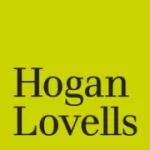This week, the European Union (EU) extended the asset freeze and admission ban to additional individuals for Syria1, Libya2, Belarus3, and Iran4, as well as to new entities in Iran ( see attached list). The expansion of the restrictions is the result of the deterioration of conditions in these countries, mainly further harassment of political opposition and, with respect to Iran, circumvention attempts.
The expansion of the Iranian asset freeze is mainly the result of a number of investigations with respect to attempts by Islamic Republic of Iran Shipping Line (IRISL) to circumvent sanctions by using front companies, including in the EU. Also, a number of other Iranian companies, involved in procurement of equipment and components for the Iranian nuclear industry, were listed. This is the first time so many European companies have been subjected to sanctions.
The extension of Syrian sanctions to top Syrian officials is the result of the EU concluding that previous sanctions were ineffective in stemming the regime's crack-down on opposition. If the situation in Syria does not improve, further sanctions will be considered.
The extension of Belarusian sanctions is the result of recent
sentences in political trials stemming from last year's
presidential elections. A new round of economic sanctions on
Belarus, which may include asset freeze on state-owned entities as
well as other measures, is also being discussed.
More detailed information regarding the measures implemented, by country, is below.
Iran - The EU extended the existing asset freeze to five individuals, officials from the Atomic Energy Organization of Iran (AEOI) and a substantial number of entities, mainly related to IRISL. Targeted Iran entities are involved in a wide range of industries such as petroleum, banking, shipping, and transportation in addition to nuclear-related. The extension of sanctions to 73 companies related to IRISL confirms the seriousness with which the EU treats restriction of IRISL's circumventing activities. The newly designated entities include:
- A number of Iranian entities involved in procurement of materials and equipment in Iran's nuclear program;
- Two subsidiaries of the AEOI;
- A Belarusian bank co-owned by a number of designated Iranian banks;
- Two Malaysian companies;
- Two UAE companies involved in procurement of components for Iranian nuclear program;
- Thirty-seven German entities, either owned or controlled by the IRISIL, other designated persons, or one German-Iranian bank involved in circumventing EU sanctions on financial transactions;
- Twelve Isle of Man entities, either IRISL subsidiaries, or controlling ship-owning companies in Hong Kong;
- Nineteen Hong Kong companies, owning ships operated by SAPID (which took over IRISL's bulk business); and
- Six Maltese companies and a Cypriot company, ultimately controlled by IRISIL.
Syria - The EU has expanded the existing asset
freeze and travel ban to additional 10 individuals, mainly
high-level Syrian officials (including the Syrian President Bashar
Al-Assad and Vice President Faruq Al Shar), as well as two
businessmen: Mohamed Hamcho, and Ihab Makhlouf (Vice President of
SyriaTel). In addition, the EU suspended all ongoing bilateral
programs with Syria (e.g., canceled the signing of the Association
Agreement with Syria, suspended funding from the European
Neighbourhood and Partnership Instrument and under the Euro-Med
partnership) and has asked the European Investment Bank not to
approve new financing operations in Syria. If the situation in
Syria does not improve, the EU is ready to take further
measures.
Libya - The EU has expanded its asset freeze to
Afriqiyah Airways (owned by the already sanctioned Libyan-African
Investment Portfolio), and its asset freeze and ban on admission to
Taher Juwadi, a member of the Quadhafi regime. In addition,
official talks on how to use the frozen assets for the benefit of
the Libyan population and the opposition have begun within the
Council.
Belarus - Following recent sentencing of political
opponents in trials before Belarusian courts, the EU has extended
its asset freeze and visa ban to 13 additional judges, prosecutors,
and other public officials in Belarus. The question of extending
the sanctions to state-owned entities (as called for by the
European Parliament's resolution of 12 May 2001 and pushed by a
number of EU Member States) continues to be on the agenda.
For detailed information about the individuals and entities that
are targeted, please
see the attached list. In the meantime, we will continue
to follow this and report on any new developments.
Footnotes
1 Council Implementing Regulation (EU) No 504/2011 of 23 May 2011 implementing Regulation (EU) No 442/2011 concerning restrictive measures in view of the situation in Syria, OJ L 136 Volume 54, 24 May 2011, p45-47; Council Implementing Decision 2011/302/CFSP of 23 May 2011 implementing Decision 2011/273/CFSP concerning restrictive measures against Syria, OJ L 136 Volume 54, 24 May 2011, p91-94
2 Council Implementing Regulation (EU) No 502/2011 of 23 May 2011 implementing Regulation (EU) No 204/2011 concerning restrictive measures in view of the situation in Libya, OJ L 136 Volume 54, 24 May 2011, p24-25; Council Implementing Decision 2011/300/CFSP of 23 May 2011 implementing Decision 2011/137/CFSP concerning restrictive measures in view of the situation in Libya; OJ L 136 Volume 54, 24 May 2011, p85-86
3 Council Implementing Regulation (EU) No 505/2011 of 23 May 2011 implementing Regulation (EC) No 765/2006 concerning restrictive measures against President Lukashenko and certain officials of Belarus, OJ L 136 Volume 54, 24 May 2011, p48-51; Council Implementing Decision 2011/301/CFSP of 23 May 2011 implementing Decision 2010/639/CFSP concerning restrictive measures against certain officials of Belarus; OJ L 136 Volume 54, 24 May 2011, p87-90
4 Council Implementing Regulation (EU) No 503/2011 of 23 May 2011 implementing Regulation (EU) No 961/2010 on restrictive measures against Iran, OJ L 136 Volume 54, 24 May 2011, p26-44; Council Decision 2011/299/CFSP of 23 May 2011 amending Decision 2010/413/CFSP concerning restrictive measures against Iran; OJ L 136 Volume 54, 24 May 2011, p65-84
The content of this article is intended to provide a general guide to the subject matter. Specialist advice should be sought about your specific circumstances.

